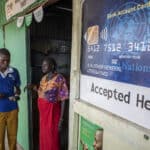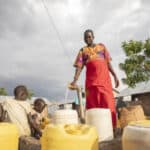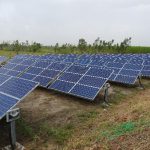With only two permanent rivers in Turkana County, water is a precious resource. The discovery of an aquifer in 2013 – albeit one too saline for human consumption – could help change things. Intertwined with water is sanitation, with only 39% of refugees having access to latrines.
Archives: Development Challenges
Site Development Challenges.
Renewable Energy
Lack of access to reliable, affordable energy is a major issue and many refugees and members of the host community said they were willing to invest in improved energy services: 28% of households indicated their readiness to bear the full costs of a mini-grid, while 17% said they would pay for a $126 solar home system.
Child Care Services
About 94% of refugee secondary school-aged children are out of school, along with 91% of host community children of the same age, with the lack of space in area schools being one constraining factor for both. Still, the two communities spend $8.6 million USD a year on education.
Agribusiness
Livestock is the main source of livelihood for the host community. Despite high levels of meat consumption, prices are relatively low. Developing the livestock value chain to ensure pastoralists are organized and have access to the necessary inputs, services, external markets, and finance could support the host community.
Financial Services
95% of respondents in the camp and 99% of respondents in town said “lack of adequate capital” prevents them from opening their own businesses. Although a credit market exists, it is largely informal. Only one-quarter of respondents took out a loan over the last 12 months. While there are two banks providing financial services in Kakuma, only one provides commercial loans to refugees and does so on a limited basis.


